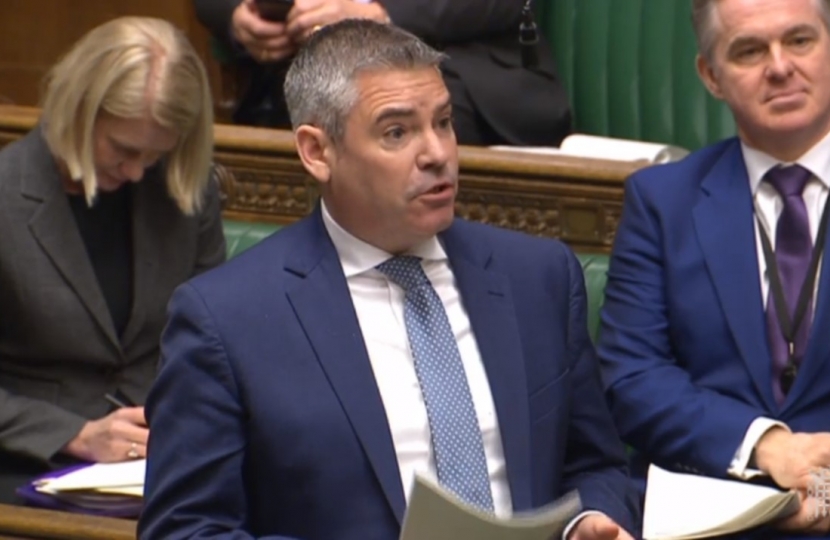
Craig Tracey, Member of Parliament for North Warwickshire and Bedworth, hosted a crucial roundtable meeting on Friday joined by Marcus Jones, MP for Nuneaton, to meet with local stakeholders to discuss current mental health provisions for young people and discuss where improvements can be made. The meeting was convened following a number of tragic cases across the two constituencies, particularly involving young males.
Nationally, the current lockdown has seen a rise in young people experiencing mental health issues as a result of having less social interaction than usual, leading to feelings of isolation and disconnect, the consequences being a visible rise in depression and other mental health related illnesses.
Commenting straight after the meeting, Craig said:
‘’I have been working with some brilliant local groups and schools about how to combat this issue of young people struggling and how best to intervene in a young person’s life who needs help.
I was delighted at being able to bring a fantastic group of 17 stakeholders together, including Mark Bland; Head at Nicholas Chamberlaine School; Coventry & Warwickshire Mind, Warwickshire County Council and other key experts in the area to discuss this.
From our discussions, these groups really demonstrated the commitment to get this right and I want to commend them for all the strategies they have in place so far to ensure young people have as much support available to them as possible during these extremely challenging times. Sadly though my case work shows that there are still some gaps and these need to be urgently addressed.’’
The pandemic has also made it difficult to identity young people struggling with their mental health in the first instance, as quite often communicating and ‘checking in’ via text message or email is no substitute to receiving face to face support, whether that be in an educational setting or a visit at home. This is an issue that needs tackling as with the rise of young people staying in their bedrooms on their internet devices, comes the rise of cyberbullying.
However, without having readily accessible counselling services that their school or college might have provided onsite, situations like these can rapidly escalate.
Craig added:
‘’The most effective action we can take right now is to create conversations around mental health and normalise the fact that anyone can be suffering silently from it. I know schools, charities and colleges in the area are communicating this but our meeting indicated that support services should also involve campaigns that young people can relate to, such as having more role models who can talk candidly about their own experiences with mental health.
This helps share awareness of there not being a ‘one size fits all’ approach to conversations around mental health and how mental illness doesn’t discriminate. Young people, especially young males, need to see evidence of someone like them who has been through a dark time yet pulled through it
However, there is a lot of fantastic work already taking place locally in tackling the above issues and we have identified several areas that we can improve on, with some great suggestions being put forward at the meeting.
Meanwhile, Marcus and I will remain in constant dialogue with stakeholders about how we can help and will raise these issues with Ministerial colleagues too. I am positive that if we think outside the box in terms of how we can get our messages out, we can make a real and lasting difference/intervention in many young people’s lives.’’
Marcus said, “This is such an important issue, made significantly more challenging by the pandemic, that’s affecting so many families to different degrees and we’ve seen some absolutely tragic cases in our local area. There should be no stigma and we should all actively encourage our children and grandchildren to not be afraid to say if they’re struggling. There is a huge amount of positive work going on across our area to support young people and their mental health, but crucially there are gaps in provision that we need to work to close. We also need simple straightforward messages and ways in which young people can be encouraged to engage with their teachers, local services or a trusted adult.
I look forward to continuing to work with Craig and all of the other local organisations and Ministers to work together to help support our local young people.”

